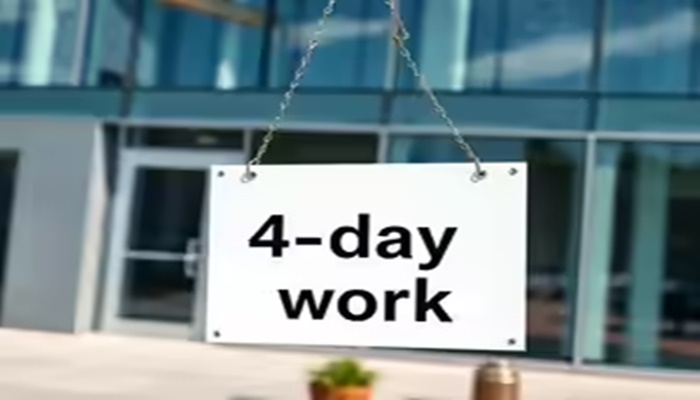A Reddit post that echoed anxiety.
“I recently bought a house for ₹1.6 crore. I took a loan of ₹1.2 crore (₹1 crore from a bank and ₹20 lakhs from relatives). I am getting paranoid since I took the loan. It’s been over a decade since I last had any EMIs, and honestly, this is overwhelming.”
No hyperbole. No drama. A man in his 30s earns ₹2.2L per month. He puts aside ₹75K for EMI, ₹45K for groceries and utilities, ₹25K for his parents, and ₹10K for dining out. This leaves him with savings of ₹65K. But peace? Out of reach.
What he narrated wasn’t unique; it was everywhere. The dream of owning a home morphs into invisible shackles. And Reddit unravelled three unsettling truths that hit like gut punches.
#1. High Earnings Vanish Under Psychological Strain, Not Just EMI
Looks solid on paper. ₹2.2L income and ₹65K in savings seem healthy. Yet, comments drilled deeper: “I personally can’t take a loan longer than 5 years. It scares me to think what will happen if I lose my job.“
Fear of dependency. Fear of stagnation. Job security, or lack thereof, looms like a shadow.
Another user observed: “Congrats! You’ve officially reached the stage where saying NO to your boss becomes impossible for late-night meetings, out-of-scope work, things that make no sense, work overload, shitty appraisals, and random client visits.”
Suddenly, a higher salary turns into more chains. EMI doesn’t just equal monthly costs; it multiplies your mental load. Even earned income becomes hostage to demands.
TAKEAWAY: Debt doesn’t just cost you money. It costs you choice. The ability to walk away. To say “Not today.” If your payslip comes with invisible strings attached, maybe it’s not income; it’s a liability in disguise.
#2. Relatives Lend Money. But Not Without Strings.
He borrowed ₹20 lakh from relatives. No interest. No paperwork. Just goodwill and hope.
But with family, money is rarely just money.
One Redditor put it plainly: “Pay the relatives’ money first, otherwise they will dance on your head.”
The damage doesn’t always come through shouting. Sometimes, it’s quieter. A change in tone. An unspoken tally is being kept at family gatherings. A subtle shift from warmth to watchfulness.
Relatives may not charge you interest, but they collect something far heavier: access to your decisions.
You bought a phone? “Shouldn’t that money have gone towards repayment?” You skipped a wedding? “Now that you’ve taken our money, you’ve distanced yourself.”
Banks don’t call your parents. They don’t shame you at dinner tables. They don’t use silence as punishment.
This is the emotional debt spiral. Where even your attempts to focus and rebuild are interpreted as avoidance or ingratitude.
TAKEAWAY: Borrowing from family means borrowing their opinions, their expectations, and sometimes, their control. If it is unavoidable, treat it like a formal loan. Draft terms. Set boundaries. Protect the relationship before it breaks under unspoken pressure.
#3. Buying a House Before Building a Safety Net Is a Trap
The original poster wasn’t showing off his new home. He was asking for help. But the comment section responded with a reality check, and it was brutal.
“1Cr is not a fancy house… If OP is young, then he didn’t have to get a house so quickly.”
Another voice chimed in with lived regret: “I took a ₹50 lakh home loan in 2018 and just closed it this year… You cannot beat debt with any other investments.”
It’s a hard truth. No mutual fund, no ELSS can outperform the emotional and financial drag of a loan hanging over your head.
Worse, the Redditor bought the house without any financial support. There was no emergency fund, no retirement savings, and no cash cushion. The structure was standing, but the foundation was weak.
He wasn’t house-proud. He was house-trapped.
Redditors had more blunt wisdom to offer: “Reducing duration instead of EMI is very beneficial. Reducing EMI could be an option in case of job loss.”
That comment held more strategy than most financial blogs. Shrinking the tenure keeps you psychologically motivated and financially ahead. Lowering the EMI just gives the illusion of control until a crisis strikes.
In the end, the Redditor became asset-rich but cash-poor. And possibly peace-poor.
TAKEAWAY: A home is not a reward; it’s a responsibility. Buying one without liquidity is not security. It’s a gamble disguised as progress. Before you lay bricks, lay foundations: savings, buffers, and plans. Because homeownership without freedom is just a more expensive form of being stuck.
Why These Three Quotes Dig Deeper Than Numbers
Borrowing long, borrowing from relatives, and borrowing without planning can trap you in debt.
Questions begin to surface:
- If you lose your job today, how will you handle your EMI?
- If your relatives ask for a sudden repayment, how will you manage to repay them and the bank?
- What happens when you have a medical emergency and no emergency fund? Will you take another loan?
These realizations echo across middle-class households. The Reddit thread revealed emotional inertia. We often think paychecks are steady, careers are constant, and salaries always rise.
But life isn’t linear. And debt designed like that is brittle.
The Loan Is Not the Enemy. The Blind Ambition Is.
These quotes force a reckoning. They reveal that money isn’t just about finances. It impacts job choices, family conflicts, and the speed of life.
It’s not the home you buy. It’s the life you trade.
If a decade-long EMI silences your no to your boss. If it turns your parents’ calls into pressure tests. If it cages your ability to save incrementally with dignity, you don’t own the home. The home owns you.
So here’s the deeper test:
If your finances were erased tomorrow, would you still recognise your life? Would you still say yes to everything, just to keep the payments going?
Debt is supposed to free us through leverage, but the examples above show the opposite: it can trap us.




















